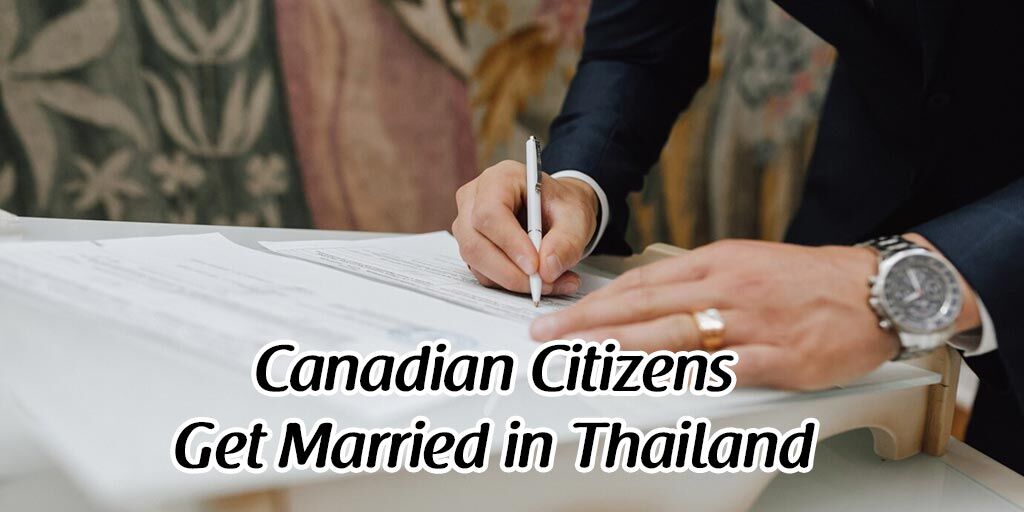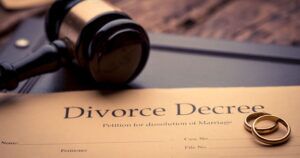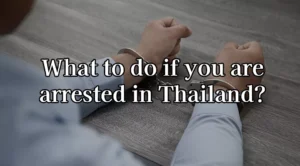Are you considering Thailand as your dream wedding destination? While this Southeast Asian country offers a unique setting for your special day, marrying here involves specific steps and legal requirements. This article guides Canadians through the marriage registration process in Thailand, ensuring a smooth and legally sound experience. Let’s dive into what you need to know for a successful marriage in Thailand, blending love and legalities seamlessly.
Registration Process
Getting married in Thailand means following certain legal steps and requirements, which are key for Canadians to know.
1. Declaration Form at the Canadian Embassy
Begin by obtaining an English declaration form from the Canadian Embassy in Thailand, available Monday to Friday from 09:00 to noon. If divorced or widowed, bring your original Certificate of Divorce or Death Certificate. Complete the form and submit it with a CAD$50 fee for notary service.
2. Translation of Documents
After notarization, the English declaration needs translation into Thai by a certified translator, usually taking 1-2 days.
3. Certification by Thai Ministry of Foreign Affairs
All documents, including the translated declaration, must be certified at the Thai Ministry of Foreign Affairs.
For the Ministry of Foreign Affairs (MFA) fee, a general estimate ranges from 400 THB to around 1,000 THB. This varies based on how many documents require legalization at the MFA.
4. Marriage Registration
The final step is the formal registration of the marriage at an Amphur, which is a local district office in Thailand. Couples must present their authenticated documents, along with identification and proof of termination of any previous marriages if applicable. The presence of two witnesses is also required.
If you don’t speak Thai, an interpreter is required. The office provides two copies of the official Marriage Certificate in Thai.
What Documents Do You Need & What You Need to Consider
For Canadians planning to marry in Thailand, it’s useful to start by reaching out to Canadian authorities. The nearest embassy or consulate can provide valuable information on required documents and their authentication.
Canadians might need to present several documents when marrying abroad, such as:
- A valid Canadian passport.
- Birth certificate.
- Single status affidavit.
- Certificate of non-impediment to marriage abroad.
- Premarital blood test certificate, if required.
- Parental consent statement, if applicable.
- Divorce certificate or death certificate, in case of previous marriage.
These documents may need translation into the language of the country where the marriage will take place. It’s also common to have these documents authenticated in Canada and stamped by a consular official of the country where you will get married. Authentication confirms that the signatures and seals on the documents are genuine.
Remember, while marrying a citizen of another country doesn’t impact your Canadian citizenship, it’s wise to understand the laws of both countries regarding dual citizenship and how it might affect consular assistance.
What Else to Keep in Mind
While the main process involves the steps mentioned, there are additional points to consider:
- Medical Certificate: This is needed, especially for recently divorced women in Thailand. If divorced or widowed within the last 310 days, a medical certificate from a hospital confirming non-pregnancy is required for marriage registration.
- Name Change Certificate: If your Thai partner has changed their name, they must provide a name change certificate at the time of marriage registration.
- Thailand Visa Post-Marriage: After marriage, you might consider applying for a marriage visa in Thailand. This visa can potentially be extended to a 12-month spouse visa, offering an opportunity to stay longer and explore life in Thailand together.
These additional steps, while not always mandatory, can play a significant role in the ease of your marriage process in Thailand.
Registering & Translating Marriage Certificates
Registering your marriage in Thailand goes beyond just a wedding ceremony. For Canadians, it’s key to focus on the registration process, as this is what makes your marriage legally valid in both Thailand and Canada.
After the marriage registration in Thailand, you might decide to translate the Thai marriage certificate into English or French, especially if you plan to use it in Canada or other countries. This translation can be notarized at the Thai Ministry of Foreign Affairs or at the Embassy of Canada in Thailand. This step, while optional, can be useful for future administrative or legal purposes in Canada.
Contact Siam Legal Today
For Canadians planning a wedding in Thailand, understanding and following the legal steps is key. This process, from handling documents to registering the marriage, ensures your union is recognized legally.
For assistance that makes this journey smoother, consider Siam Legal. Their team, knowledgeable in Thai marriage regulations, provides help that simplifies your experience. With Siam Legal, you get support that focuses on compliance with legal requirements while keeping your experience stress-free. Their expertise is a valuable asset for anyone planning a wedding in Thailand.
Use this form to contact Siam Legal. Please completely fill-out the form below and submit it.





































